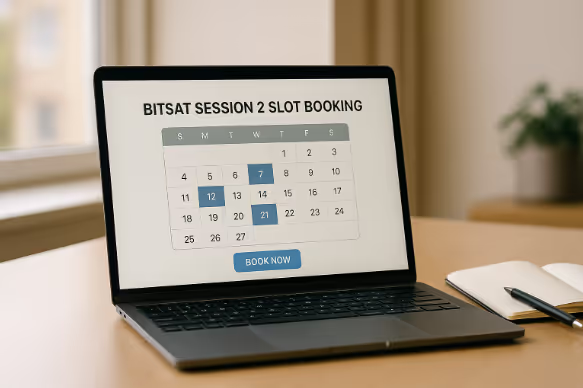What is the full form of IIT
IIT abbreviation, for Indian Institute of Technology, is a reputed educational foundation that offers higher education in the field of engineering. There are 23 IITs in India, with IIT Kharagpur, West Bengal, being the first institute established in 1950. The motto of these engineering institutes is to develop India economically, technically, and socially by training scientists and engineers.
List of IIT Institutes
IIT, a premium institute, is globally recognised for engineering education and research. The main objective behind expanding IIT was to build an elite pool of engineering talent in India. Students receive the best facilities, amenities, guidance, and training to work in better careers and impact the country’s development. The IIT Alumni Impact Study 2008 found that IITians have created nearly 2 crore jobs in India. They have also been responsible for the economic value creation of ₹20,00,000 lakh crore. In all, there are 23 IITs in India, enlisted as follows:
- IIT Madras
- IIT Delhi
- IIT Bombay
- IIT Guwahati
- IIT Kanpur
- IIT Kharagpur
- IIT Roorkee
- IIT Dharwad
- IIT Ropar
- IIT Hyderabad
- IIT Indore
- IIT Dhanbad
- IIT (BHU) Varanasi
- IIT Patna
- IIT Gandhinagar
- IIT Bhubaneswar
- IIT Mandi
- IIT Jodhpur
- IIT Tirupati
- IIT Bhilai
- IIT Jammu
- IIT Palakkad
- IIT Goa
India's Top IIT Colleges: Highlights 2024
In IIT institutes the most popular undergraduate degree is the Bachelor of Technology (BTech). Numerous postgraduate courses, such as MTech, MBA, and MSc, are offered by the IIT colleges. A number of specialised graduate programmes are available at some IITs, including the Post Graduate Diploma in Information Technology (PGDIT), the Master of Medical Science and Technology (MMST), the Postgraduate Diploma in Intellectual Property Law (PGDIPL), the Postgraduate Diploma in Maritime Operation & Management (PGDMOM), the Master of City Planning (MCP), and the MDes.
Here are some highlights from India's best IIT institutes:
India's Top 10 IIT Colleges with NIRF Ranking for 2023
To determine how valuable a certain course is for them, students might look up the ROI. ROI explains to students the value of enrolling in a course in terms of the return on their investment. Selecting a college or university based on the ROI aspect can be very beneficial when it comes to popular courses. When it gets difficult to choose between two or more colleges, this is useful.
The top IIT colleges in India are displayed in the table below, along with their NIRF rankings for the previous three years, from 2021 to 2023:
Impact of IIT Alumni
The Indian Institute of Technology provides students with all the knowledge, skills, and training to create an influence on society. Many IIT graduates have left a mark in the social, economic, and political domains. These IIT alumni include:
- K Sivan (M.E, PhD in Aerospace Engineering) graduated from IIT Bombay and was the chairman of ISRO. He received the title of ‘Rocket Mani’ for inventing cryogenic engines.
- N. R. Narayana Murthy (M.Tech) graduated from IIT Kanpur. He is the co-founder and former chairman of Infosys. He also received the Padma Shri award in 2000.
- Chetan Bhagat (B.Tech, MBA) is a graduate of IIT Delhi. He is an author, columnist, screenwriter, motivational speaker, and television personality. He is well known for his works.
- Raghuram Govind Rajan (B.Tech, MBA, PhD) graduated from IIT Delhi and is an Indian economist. He served as the 23rd governor of RBI and was also the Chief Economist and Director of Research of IMF.
Benefits of Graduating From IIT
The Indian Institute of Technology provides students with many career opportunities in engineering. It is due to its top-notch infrastructure, connections, and recruitment opportunities. Here are some of the benefits of studying at IIT:
Facilities
All of the IIT campuses are equipped with the best facilities to support the education of their students. Some facilities include high-speed LAN, DC++, labs, and computer centers.
Salary
IIT graduates receive recruitment opportunities and higher salaries than most other engineering graduates. The salary and packages can vary across campuses, but most have an excellent package.
Alumni Support
The IIT network is sturdy and well-connected. Students receive training sessions and internship opportunities with the help of this network and find it easier to blend in with the competition.
Entrepreneurship
IIT helps its students reach great heights. In the last two years, 73 out of 100 unicorn startups have founders from IIT. It shows the worthiness and potential of the studies.
Prestige
Passing out from an IIT is a matter of pride. Anyone coming out from it holds their head high. With a minimal fee structure and reputable studies, it is the best among all the Indian institutes.
The Process For IIT Admission
IIT, meaning Indian Institute of Technology, picks the creamy layer of the students via IIT-JEE examinations. Over 10 lakh applicants attempt to secure a spot at the prestigious Institute of Technology (IIT). The admission process requires effort and determination.
Steps for IIT Admission
- Students must complete their 12th standard exams with three compulsory subjects: Physics, Chemistry, and Mathematics.
- The next step is to apply for the JEE Main registration and submit the required documents.
- IIT aspirants need to qualify in the JEE Main and JEE Advanced exams, with JEE Mains being the qualifying exam for Advanced.
- After students qualify, seats are allocated through a counselling process by the Joint Seat Allocation Authority (JoSAA)
The JoSAA’s official website holds the details about the allocation of seats and the admission schedule.
IIT Courses
IIT offers programmes at different educational levels like undergraduate (UG), postgraduate (PG), and doctorate (PhD). These are the courses offered in each IIT, along with the number of seats available. Various institutions accommodate a diverse number of students and different courses. The cut-off for the engineering streams varies. You must look for the course and review the IIT that offers it. Although you must plan to score excellently because of the competition, checking for an average cut-off for your stream helps.
How to Prepare for IIT-JEE
Learning the IIT abbreviation and learning about getting to it is not complete without tips and tricks. Know about them, and it is sure to help you excel in getting through the exams.
- Always use NCERT books as your base for the exam. 60-70% of the JEE Main paper comes from its study material as it is the primary textbook in every school.
- Revise daily and clear doubts with professors regularly. It can help with memorising and problem-solving. Avoid last-minute studying to keep away confusion.
- The National Testing Agency (NTA) provides mock tests that students can solve to get more practice and build confidence. Use it before Mains and Advanced for the best.
- With the effort required to appear for the JEE Main exam, it helps to keep a positive attitude. Motivation is the primary centre of your energy and can help you achieve goals.
- Always have adequate sleep so you can perform at your best. Eat meals regularly, get enough rest and exercise. It will help build concentration and reduce stress.
- Smart study should be your goal in every aspect. Cramming will never help. Understand the concepts well and decipher your tricks to retain and revise.
Specialization After IIT
Students spend a lot of time working hard to crack IIT-JEE, but it is also vital to think about the career opportunities available after graduating from IIT.
- IIT students already exhibit a great deal of determination. If one pursues a B.Tech, one can appear again for the GATE examination and go for persuing M.Tech again in an IIT institute.
- IIT students are innovative and creative. Founding a startup with creativity is one way of setting a career and offering employment opportunities to others.
- Becoming a programmer is for all engineering students. Here, you can work as a manager, manage databases, code, design, test programmes, and develop computer applications.
- Many IIT graduates work in Public Sector Undertakings (PSU). It offers jobs with renowned institutes like Bharat Heavy Electricals Limited, Coal India Limited, Food Corporation of India, and more.
How to Get Selected in IIT
Every year, hundreds of thousands of applicants aspire to gain admission to the Indian Institutes of Technology (IITs). The IITs administer an entrance examination as part of the selection process. To be eligible for the JEE Advanced, you must first qualify the JEE Main. Successfully navigating both of these steps ensures your enrollment in this esteemed institution. Yet, securing a spot requires diligent preparation and hard work.
What is an IIT degree
The IITs offer various undergraduate and postgraduate, doctorate programs all over India. These courses are mainly in the fields such as science, engineering, and technology. All over 23 IITs offer a total of 250 courses for the B. Tech degree.
Degrees Programs available at IITs
For UG
- Bachelor of Science
- Dual Degree, i.e., B. Tech and M. Tech
- Dual degree (BS+MS)
- B. Arch is also known as Bachelor of architecture
- B. Des (Bachelor of Design)
- A joint course for M. Sc and Ph. D
For PG
- MS (Master of Science)
- Dual degree (MSc+PhD)
- MDes ( Master of Design)
- MBA (Master of business administration)
- MPhil (Master of Philosophy)
What is the salary of IIT?
The average salary for IIT Engineer is ₹40,91,016 per year in the India. The average additional cash compensation for a IIT Engineer in the India is ₹28,91,016, with a range from ₹27,62,986 - ₹30,19,046.



.avif)







.svg)